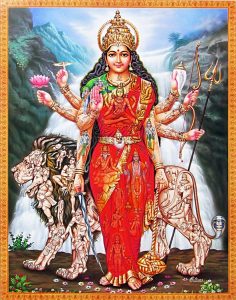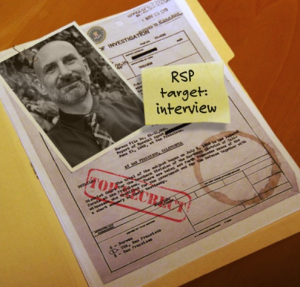Six Scholars Discuss the Dissertation to First Book Process
Ever wonder what it's like to complete the dissertation to first book process? How people find publishers? How much the publisher and editor influence the project? This podcast offers a roundtable discussion where six scholars discuss these questions and more. All six published some version of their dissertation, and they have unique insights and anecdotes to help explain and illuminate this process.
Religion and the Psy-Disciplines
Thank you Charles Schulz!
A therapist, a chaplain, a guru, a psychoanalyst, a missionary, a university counselor: how do these figures interact? In a milieu where meditations take place as part of church services and mental health services incorporate a spiritual dimension, the relationship between religion and the ‘psy’ disciplines – psychology, psychiatry, psychotherapy – bears thinking about.
In this podcast, Dr. Christopher Harding uses his research on psychoanalysis and Buddhism in modern Japan to tackle the two-way dialogue between religion and the psy-disciplines. How have these shaped each other, and what are tensions between them?
Reinventing Graduate Education in the Study of Religion

We spend a lot of time on the Religious Studies Project discussing Religious Studies as a discipline or field of study, what it means to study 'religion' with or without quotation marks, and what exactly it is that the critical, scholarly study of societal discourses surrounding 'religion' might have to offer. However, up until today we have never tackled head-on the institutional location of Religious Studies within a higher education environment that is becoming increasingly stretched, and dominated by market forces and political whims. In particular, how might this situation affect graduate education it the study of 'religion'? What can scholars of 'religion' do about this situation? Are we powerless? Must we simply sit on the sidelines and stick to our guns, or are there constructive alternative ways forward? To discuss these questions, and and an exciting new graduate programme looking at Religion in Culture.I am joined today by Drs Merinda Simmons and Michael Altman, both of the University of Alabama.
Blog post about the course: https://religion.ua.edu/blog/2016/12/theres-a-new-m-a-in-town/
Details of the course: http://religion.ua.edu/MA.html
Misplaced Faith?: A theory of supernatural belief as misattribution
People use both natural and supernatural explanations to explain various happenings all over the world. If a bridge collapses, who's responsible? Is this a fortuitous event or the product of a higher purpose? It is quite common in certain communities to report the experience of God working in an individuals life, and personal experience is often used as testimony in establishing the reality of a particular supernatural agent. The inquisitive mind will ask: What can science say about supernatural attributions? Does scientific evidence have any bearing at all on the existence of a God or gods? In this podcast, Thomas J. Coleman III interviews Dr. Luke Galen on his latest theoretical work (preprint available here: https://osf.io/preprints/psyarxiv/ech9x/), which combines evidence from across the psychological sciences to address how natural processes influence attributions of supernatural agency.
Politics of this world: Protestant, evangelical, and Pentecostal movements in Peru

Evangelicalism in Peru has become a driving force in politics and decision making across major subjects, such as gender-related policies and institutional power. But it’s relevance today in the current political landscape is only the result of a much larger process, one that started around the end of the nineteenth century, with the entrance of the first protestant denominations and the establishment of their grassroots across the country. In this podcast, professor Juan Fonseca aims to elaborate a brief history of Protestantism, in order to comprehend its current mainstream manifestation.
Sexual Ethics and Islam
Alongside the problematic dominant caricature of Islam as a violent religion, there is perhaps no other issue so problematic in contemporary Western discourse on Islam than discussions sexuality and gender. Western stereotypes of the downtrodden Muslim woman are often countered by the claims of Islamic scholars that women are more liberated, respected and secure within Islam than in other religions or in the "secular" West. Regular listeners to The Religious Studies Project will be unsurprised to learn that there is a lot more going on below the surface of these dominant discourses. Why are "we" even having this discussion about sexual ethics and Islam? How might one begin to study such a vast and "problematic" topic? What are some of the most prescient issues that recur in this contested field? And what is the broader significance of this discussion for Religious Studies in general? To discuss these issues and more, Chris is joined this week by Professor Kecia Ali, of Boston University.
Check out a recent lecture by Kecia on sexual ethics and Islam here.
Studying Tantra from Within and Without

Douglas R. Brooks, Professor of Religion at the University of Rochester, discusses how he became involved in the academic study of Hinduism, specifically Tantra and goddess-centered traditions. He begins with his training in Sanskrit and Tamil at Middlebury College, where he found that little English work had been done on Hindu traditions for some years. Living intermittently in India during the 1970s–80s, Brooks found a lack of secular studies of Hinduism, as opposed to religious devotional studies. Given these challenges, Brooks has had to study Tantric Hinduism from within and without the traditions. On the one hand, his friendship with Dr. Gopala Aiyar Sundaramoorthy introduced him to the lived practice as well as venerable philosophical traditions of Tantra and tantric yoga. Working with Sundaramoorthy, Brooks was "within" a vibrant Hindu tradition. As he refined his work at Harvard Divinity School, however, Brooks articulated a critical, non-religiously invested perspective on Hinduism — in short, observing Tantra from "without," treating the religion like any other secular subject worthy of study. This approach caused Brooks to clash with older scholars at HDS, who assumed that Judeo-Christian terms and concepts were universally applicable to all religions. Later in the interview, Brooks discusses his interpretation of Tantric yoga, giving particular attention to the philosophy's doctrine of application to daily problems. This kind of yoga is distinct from the New Age, exercise-based style of yoga that B.K.S. Iyengar and others popularized in the West. In recent years, Brooks has attended many popular yoga workshops with the goal of educating the general public about genuine Tantric philosophy from India. He concludes with some reflections on public service as an academic and his plans for a new book on Tamil pilgrimages.
Minority Religions in the Secret Police Archives
James Kapaló takes us inside the Eastern European secret police archives to show us how minority and new religious groups were portrayed. We explore the visual and material presence of religious minorities in the secret police archives in Hungary, Romania and the Republic of Moldova. In particular, we look at Inochentism, a new religious movement in Moldova and Romania. In the discussion, we consider the theoretical and methodological issues in working in archives suh as these, and the historiography of NRMs. We also discuss the complexity of the religious field in post-Communist Europe.
Witchcraft in Rural Slovenia
In this podcast, professor Mirjam Mencej talks about contemporary witchcraft in Styria region in rural Eastern Slovenia. Based on her ethnographic fieldwork in the area, Mencej describes witchcraft from a variety of angles, from psychological to anthropological and historical, providing a detailed understanding of witchcraft as part of the lived social reality of the community. In what kind of situations are witchcraft narratives evoked? What makes them effective? Who could gain the reputation of being a witch and why? Mencej also describes the role of the ‘unwitcher’, a person who had the power to counter bewitchment and detect the witch responsible.
Millennialism and Violence?
Descriptions of the End Times are full of violent imagery, of mass destruction through earthquakes, tidal waves, fire and ice. These images are written deeply into our culture through the book of Revelation, but are by no means limited to the Christian imagination. Often, our idea of modern millennial groups is informed by images of violent confrontations between them and the state, for example at the Branch Davidian compound in Waco, Texas, or of mass suicide, such as with Heaven's Gate or the People's Temple at Jonestown.
Are we right to connect millennialism and violence? Are these groups typical, or rare exceptions, magnified out of proportion by the lens of the media - and scholarship? How do we account for the popularity of millennialism outside of religious traditions, new, extreme or otherwise?
This audio/visual episode was produced in collaboration with CenSAMM, the Centre for the Study of Apocalyptic and Millenarian Movements.


